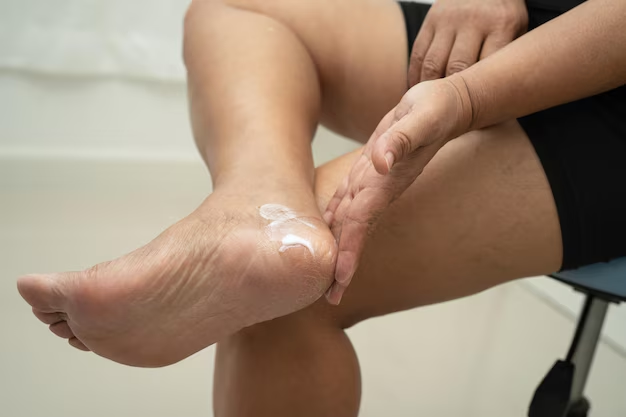Your Guide to Can Diabetic Neuropathy Be Reversed
What You Get:
Free Guide
Free, helpful information about Diabetes FAQ and related Can Diabetic Neuropathy Be Reversed topics.
Helpful Information
Get clear and easy-to-understand details about Can Diabetic Neuropathy Be Reversed topics and resources.
Personalized Offers
Answer a few optional questions to receive offers or information related to Diabetes FAQ. The survey is optional and not required to access your free guide.
Is It Possible to Reverse Diabetic Neuropathy?
Diabetic neuropathy, a type of nerve damage associated with diabetes, can bring tremendous discomfort and affect your quality of life. Can it be reversed? The short answer is that while the damage cannot be completely undone, its progress can be slowed or even halted with proper management and lifestyle changes. This leaves room for hope and improvement for those affected.
Understanding Diabetic Neuropathy
Diabetic neuropathy occurs as a result of prolonged high blood sugar levels, which can damage nerves throughout the body. It most commonly affects the legs and feet. Symptoms vary from mild to disabling and may include tingling or burning sensations, sensitivity to touch, and muscle weakness. Caught early, the disease's effects and pain can be minimized.
Slowing Progression and Alleviating Symptoms
Blood Sugar Control
The most effective strategy in slowing the progression of diabetic neuropathy is maintaining optimal blood sugar levels. By preventing further nerve damage, patients can stave off additional symptoms and complications.
Medication and Pain Management
There are medications available to help manage the pain and discomfort associated with diabetic neuropathy. Prescription drugs such as anticonvulsants, antidepressants, and topical treatments can offer relief.
Physical Activity and Diet
Regular physical activity and a balanced diet play a crucial role in managing both diabetes and diabetic neuropathy. Exercise aids in blood sugar control and promotes blood flow, while a healthy diet helps keep blood sugar at a stable level.
Financial Assistance for Managing Diabetic Neuropathy
The costs associated with managing diabetic neuropathy can be substantial due to medication, healthcare visits, and lifestyle changes. Fortunately, several resources and programs are available to help alleviate this financial burden.
Government Aid Programs
Government programs such as Medicaid and Medicare can offer support for those eligible. These programs often cover medical costs associated with diabetes management and complications like diabetic neuropathy.
Financial Assistance and Debt Relief Options
Those struggling to manage healthcare expenses may consider seeking financial assistance through charitable organizations or exploring programs designed to offer debt relief. These resources can provide immediate financial relief and allow individuals to focus more on their health without being overwhelmed by medical costs.
Educational Grants and Support
Some patients may not be aware of educational grants and resources available through public health departments or non-profit organizations. These resources offer information and support on diabetes management and healthy living, empowering individuals to make informed decisions about their health.
Exploring All Avenues of Support
Though diabetic neuropathy may not be reversible, taking a proactive approach to its management can significantly improve outcomes. Furthermore, leveraging available financial assistance resources can ease the journey of living with this condition.
Evaluating your options, creating a plan, and sticking to a healthy lifestyle can make a dramatic difference. Remember, though diabetic neuropathy presents challenges, it also offers opportunities to engage with resources that can help improve your well-being and financial stability.
Key Financial Assistance and Support Resources
- 💸 Medicaid & Medicare: For covering medical costs associated with chronic conditions.
- 📊 Financial Aid Programs: Explore charitable organizations for assistance.
- 📚 Educational Grants: Available through non-profits for better disease management.
- 🏛 Debt Relief Options: Seek counsel and support to manage medical debts.
What You Get:
Free Diabetes FAQ Guide
Free, helpful information about Can Diabetic Neuropathy Be Reversed and related resources.

Helpful Information
Get clear, easy-to-understand details about Can Diabetic Neuropathy Be Reversed topics.

Optional Personalized Offers
Answer a few optional questions to see offers or information related to Diabetes FAQ. Participation is not required to get your free guide.


